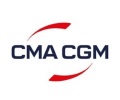MABUX: Bunker market this morning, Aug.04.

MABUX World Bunker Index (consists of a range of prices for 380 HSFO, VLSFO and MGO (Gasoil) in the main world hubs) decreased slightly on Aug.03:
380 HSFO – USD/MT – 300.19 (-1.11)
VLSFO – USD/MT – 356.00 (-2.00)
MGO – USD/MT – 437.39 (-0.44)
Meantime, world oil indexes rose slightly on Aug.03, on positive economic data from the United States, Europe and Asia, but investors remained concerned about rising COVID-19 cases globally.
Brent for October settlement increased by $0.85 to $44.15 a barrel on the London-based ICE Futures Europe exchange. West Texas Intermediate for September delivery rose by $0.74 to $41.01 a barrel on the New York Mercantile Exchange. The Brent benchmark traded at the premium of $3.14 to WTI. Gasoil for August delivery gained $5.00 – $370.00.
Today morning global oil indexes have turned into slight downward movement again.
Market is worried about oversupply as OPEC+ is due to start reducing production cuts this month. Besides, a recovery in oil prices from record lows is likely to encourage U.S. shale producers to ramp up output.
Russia said that the country’s oil output in July was unchanged from levels seen in June, in line with an OPEC+ agreement. It was pointed out that RF level of compliance with the deal in July was close that recorded in June, when it stood at 99%. Under the OPEC+ agreement, Moscow pledged to reduce its output to around 8.5 million bpd in May-July to support oil prices. The deal does not include output of gas condensate, a light oil. The cuts under the global deal should be eased starting from August because of a recovery in oil prices. Russia has said it would increase its oil production by 400,000 bpd.
It is expected that Saudi Arabia to cut the price of its flagship Arab Light crude grade to Asia for September by an average of US$ 0.48-0.61 per barrel. While the Saudi price hikes in the past three months signaled oil demand recovering and Middle East Dubai/Oman benchmarks strengthening as supply grew tighter after the OPEC+ cuts, the expectations of lower Saudi prices going forward is a sign that demand recovery is stumbling and dragging the Middle East benchmarks and refining margins down.
India was under lockdown for most of April and May because of the coronavirus pandemic, and now people seem to be avoiding commuting on public transportation where possible. The use of passenger cars and two-wheelers in India is only set to grow, which may translate into higher demand for refined oil products and consequently, higher crude oil imports. Meantime, India’s crude oil imports slumped in June to their lowest levels since 2011, with oil refiners buying less crude because of maintenance and weaker demand.
The autonomous government of northeast Syria has signed a deal for the marketing of crude oil with a U.S. company. Most of Syria’s oil is in the northeast of the country, which is under the control of a Kurdish-led Syrian Democratic Council, the political wing of opposition formation Syrian Democratic Forces, which has enjoyed U.S. support through the prolonged conflict. It was also reported, that the United States was going to supply two modular refineries to northeastern Syria, which will satisfy a fifth of the oil-rich region’s needs. At the moment, most of the oil still produced in Syria—around 60,000 bpd—is refined in makeshift facilities. Before the war, the country produced 380,000 bpd.
The LNG market went into a tailspin this year due to the pandemic, but in fact, the global market for natural gas was heading into a downturn at the start of 2020, before the coronavirus led to widespread shutdowns. A substantial increase in export capacity in 2019 outpaced demand growth, pushing down prices. Against a weak backdrop, the pandemic-related demand destruction disturbed the market, leading to LNG prices in Asia (JKM) to collapse below $3/MMBtu and even below $2/MMBtu for a period of time. The negative effect of the LNG supply glut has been felt most acutely by U.S. exporters. The gas glut in Asia led to storage filling up in Europe, and ultimately the flexibility of American LNG translated into cancelled cargoes from the United States. Dozens of cargoes were cancelled in each of June, July and August.
We expect bunker prices may slightly rise by 3-5 USD today.
Source: MABUX

 Hellenic Shipping News Worldwide Hellenic Shipping News Worldwide, Online Daily Newspaper on Hellenic and International Shipping
Hellenic Shipping News Worldwide Hellenic Shipping News Worldwide, Online Daily Newspaper on Hellenic and International Shipping





















 PG-Software
PG-Software